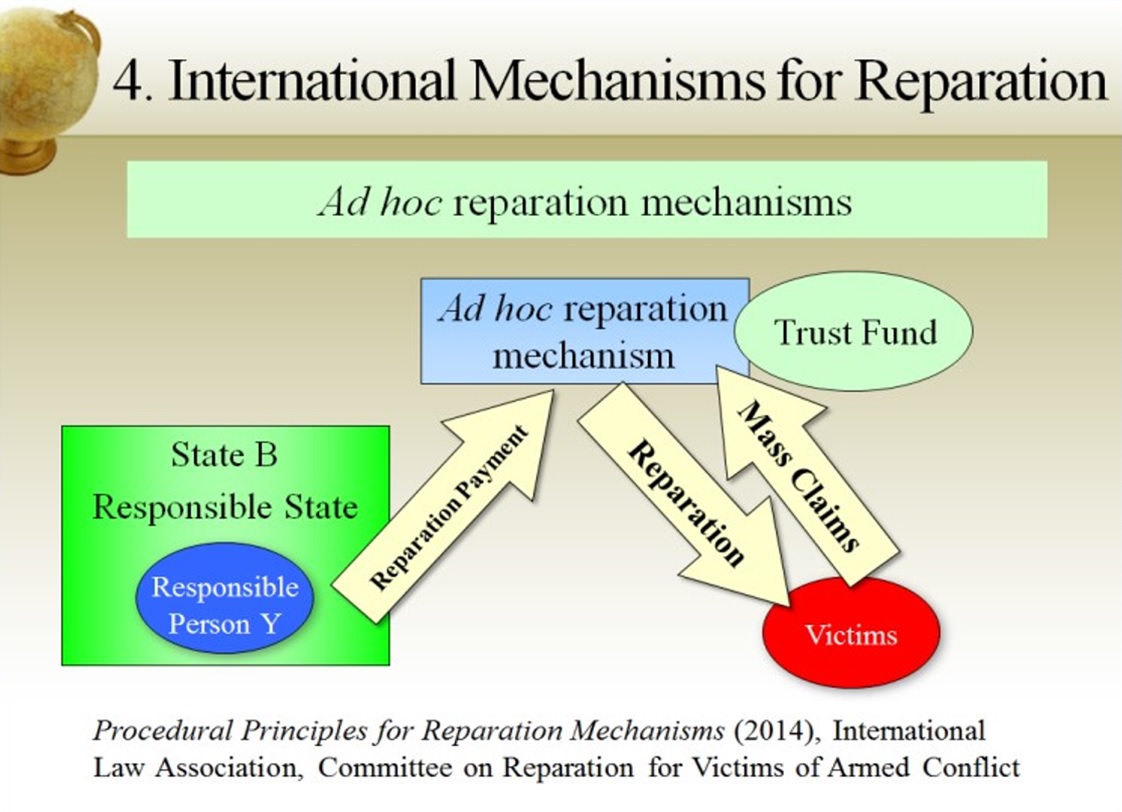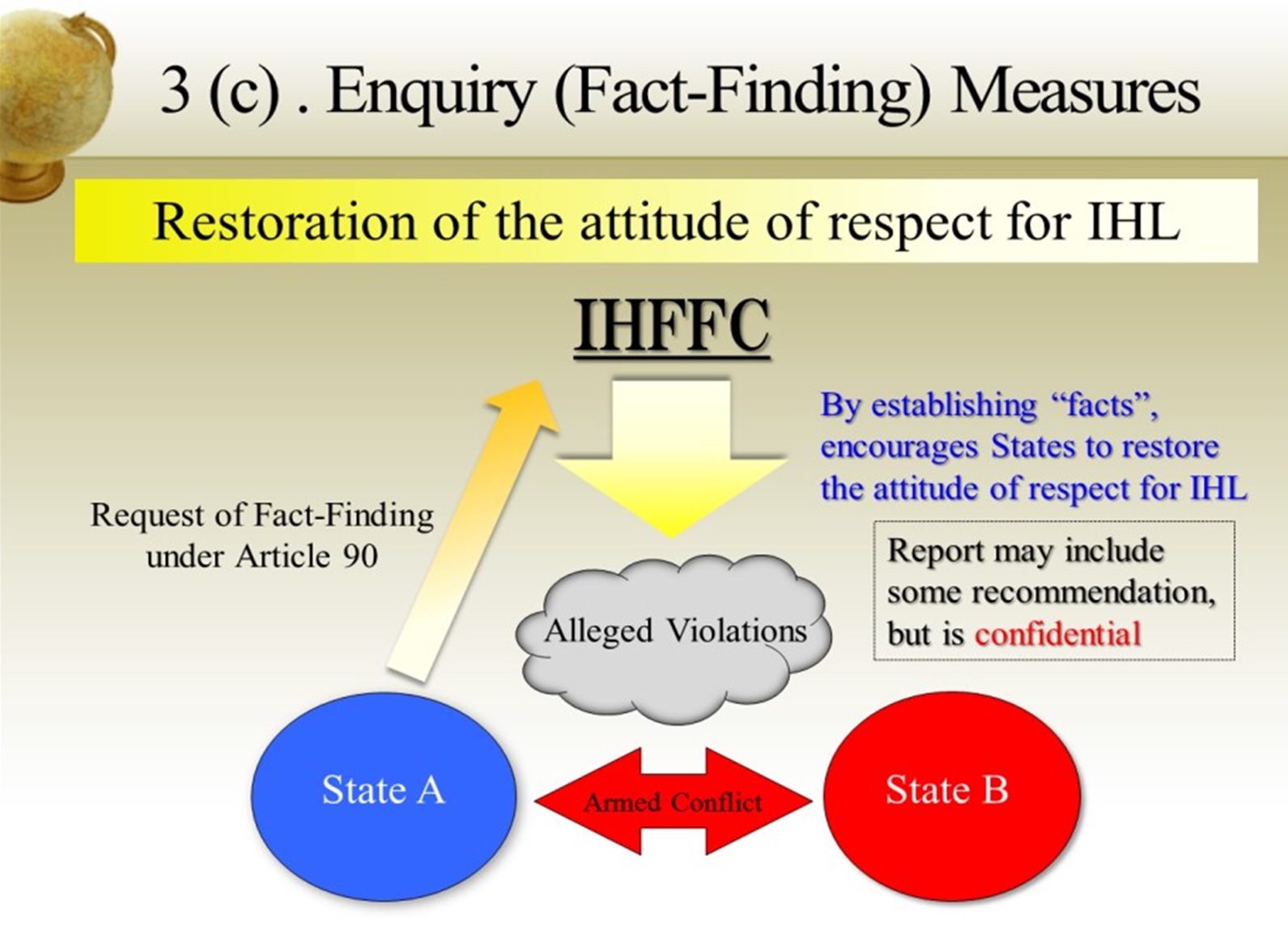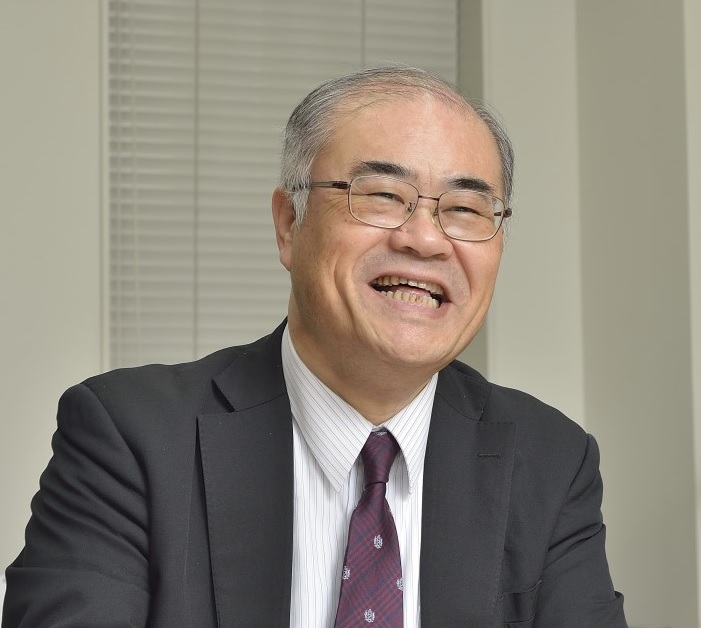Waseda Frontline Research Vol. 8, Part 1 – Seeking international law that provides relief to victims and guarantees human rights
Tue, Mar 22, 2016-
Tags
International lawyer
Professor Shuichi Furuya, Faculty of Law (Waseda Law School)
Relief for victims in armed conflicts: the roles and limitations of international law
Whether it is the indiscriminate terrorism of the Islamic State (IS), the Syrian refugee crisis, or the nuclear tests and provocations of North Korea, today’s international order is not stable. The root of these issues may lie in the diversity of these nation states’ structures. Given that states do not have sufficient power to control their domestic matters in some regions, what form should international law take in the future? To discuss this question, we spoke with Professor Shuichi Furuya.
Functions of law in the international community
I specialize in international law and my current major research topics are international criminal justice and reparations for victims of armed conflict. As international order becomes increasingly unstable, my research is growing more and more relevant.
An underlying factor of issues the international community faces is the weakening of nation states and their ability to maintain order. During the Cold War, nation states of the West and East were firm and stable. Today, however, areas such as Syria and Somalia are not functioning as normal nation states. At the same time, there are states such as the United States, Japan, and China that maintain stability, while there are intermediate states that fall in the middle. In the international community where diversity among entities is considerably increasing though they are all called “states” equally, how should we regulate their conduct effectively? This is an important issue that need to be addressed.
For example, the international framework for global warming mitigation measures, called the Paris Agreement, was adopted last December. This agreement is a commitment to cut CO2 emissions, even in developing countries, but it remains to be seen whether all member states will be able to comply with the provisions. How can we make them follow the rules? A challenge for international lawyers is to create a new idea of implementation of international law that is based on the heterogeneity among nation states.
When examining this issue, you may remember that criminal punishment is used to regulate the conducts of individuals in a domestic legal system as one of the ways of enforcement of law. Similarly, in international relations, there is the concept of pursuing individual responsibility. International criminal law is founded upon this idea. Among crimes under international law, the four core crimes genocide, crimes against humanity, war crimes, and crimes of aggression are under the jurisdiction of the International Criminal Court (ICC).
As a recent example of pursuing individual responsibility, the ICC found Thomas Lubanga Dyilo guilty of war crimes for his recruitment of child soldiers in the Democratic Republic of Congo.
The ICC, which came into operation in 2002, consists of the Judicial Division, the Office of the Prosecutor, and the Registry. The Prosecutor investigates cases brought to the ICC, and chambers composed of some judges determine whether the accused is guilty or not. In addition to cases in which the Prosecutor initiates investigations on their own initiatives, investigations may also be triggered when certain situations are referred to by a state party of the Rome Statute or the United Nations Security Council. Today, investigations are ongoing for situations in nine countries, and arrest warrants have been issued without exception, even for top leaders such as President al-Bashir of the Sudan.

Picture: Professor Furuya shares his perspective on various international issues
Complexities and limitations of individual responsibility
The ICC is attempting to investigate the criminal responsibility of Mr. al-Bashir. However, did he actually kill anyone? The answer is probably NO. Killing was done by soldiers at the front line of battlefields. From the genuine perspective of criminal law, the soldiers who actually killed people should be held responsible. From a holistic point of view, however, these soldiers are only cogs in the machine.
In such cases, an organization, such as a state or an organized armed group, which functions as a system, commits the crime. According to traditional domestic criminal law, an individual makes a decision of his own volition, and criminal responsibility emerges when this individual commits a crime. In contrast, when a system like a state acts as an organization to commit a crime, how should we theoretically think about individual responsibility? This is one of my research topics.
Should there be a third type of responsibility that incorporates state responsibility and individual responsibility? If you think about it from the reverse point of view, would state responsibility and individual responsibility cancel each other out and make individual responsibility under international law even narrower than it is under domestic law? As I mentioned before, terrorism and civil wars are caused by the weakened ability of the state itself. On the other hand, international crimes are committed within the context of a certain structure of control. In such situations, how should we understand the contextual relationship between individual responsibility and an organization? My current goal is to present a new realistic way of thinking about this question.

Figure: Lecture at “the 10th Southeast and Northeast Asia Session, August 20, 2015”
“Reparations for victims of armed conflicts” (Source: Shuichi Furuya)
Relief for victims
Another relevant research topic is relief for victims. International humanitarian law applies to armed conflicts, and international criminal law responds to violators but lacks consideration for victims. Though Japan and South Korea reached agreement on the issue of so-called comfort women at the end of last year, this is only an agreement between states, not with individual victims. This is only one example, and in many cases, victims of armed conflict are forced to silently accept their situation.
In Syria or wherever else there is a conflict, there will always be victims. How can we provide relief? As a person involved in international law, I cannot overlook this topic. Presently, there are no fixed organizations that provide relief to victims. At the level of individual conflicts, know that more often than before, ad hoc organizations and initiatives are established after a conflict is over in order to provide relief for victims. In this respect, I believe it is important to prepare relevant principles as a legal basis for setting up an ad hoc mechanism that the United Nations or other bodies can establish to provide relief to victims. For that purpose, another important and relevant research topic is theoretically establishing a set of rules by collecting information on present organizations and their activities around the world.

Picture: Professor Furuya conducting a lecture in English at the Southeast and Northeast Asia Session on IHL (Seoul). (August 20 & 21, 2015) (Source: Shuichi Furuya)
Practice and theories of the fact-finding commission
In recognition of my studies on international criminal law, international humanitarian law, and relief for armed conflict victims, I was elected to be a member of the International Humanitarian Fact-Finding Commission (IHFFC) in 2011, and a vice chairperson last year. IHFFC is an international organization established by Protocol I to the Geneva Convention, adopted in 1977. The organization consists of fifteen members. When international humanitarian law is violated, those affected by the conflict may differ on who is at fault, so in some cases, relief for victims may not move forward. In such situations, IHFFC carries out activities to investigate facts and ensure that international humanitarian law is respected among those involved.

Figure: Lecture at “the 10th Southeast and Northeast Asia Session, August 20, 2015”
“Mechanisms to ensure respect of international humanitarian law” (Source: Shuichi Furuya)
As international relations become more complex, the armed conflicts also grow more diversified in nature. Along with international armed conflicts between states, many conflicts have occurred between states and organized armed groups, or between armed groups. In Syria, for instance, the Syrian government forces and antigovernment groups are fighting a civil war where Russia seconds the former and the United States the latter, while both the Syrian government forces and the antigovernment groups fight against the Islamic State (IS). In this respect, the United States and Russia have a shared interest. The only means to minimize disastrous outcomes from such an armed conflict is to combine skillfully systems for international criminal justice, fact-finding missions, and relief for victims. In this sense, I believe my research is extremely relevant and has academic value in theorizing new phenomena that have not been fully covered by the existing international legal theories.

Picture: At an IHFFC (International Humanitarian Fact-Finding Commission) meeting (March 17, 2015). Professor Furuya is on the far left in the front row (Source: Shuichi Furuya)
Release No. 2 will introduce doctoral student Mr. Yota Negishi, a student of Professor Furuya and a winner of the Japan Society for the Promotion of Science’s Ikushi Prize. He will discuss international issues with Professor Furuya.
※Ikushi Prize, Japan Society for the Promotion of Science
※Waseda University, Research News
※Waseda University, Research News (Award Ceremony)
Profile
 Shuichi Furuya
Shuichi Furuya
Professor Furuya assumed his current position after withdrawing from the Doctoral Program at Waseda University’s Graduate School of Law and serving as Professor at Kagawa University’s Faculty of Law. He is a member of the International Humanitarian Fact-Finding Commission, and was a Visiting Professor of the Netherlands Institute of Human Rights at Utrecht University. His main subjects of study include international criminal law, international criminal adjudication, and the legal frameworks for the relief of victims after armed conflicts as a part of the International Law Association (ILA).
He is a board member at the Japanese Society of International Law (editorial board chair of the Journal of International Law and Diplomacy), the Japanese Association of World Law, the International Human Rights Law Association, the International Law Association Committee Officer, the American Society of International Law, the Asian Society of International Law, and the European Society of International Law.
Accomplishments and research
- “Domestic Implementation of the Rome Statute in Japan”, Seoul International Law Journal, vol. 22 (2015), 39-56.
- “Victim Participation, Reparations and Reintegration as Historical Building Blocks of International Criminal Law”, in Morten Bergsmo, CHEAH Wui Ling, SONG Tianying and YI Ping eds., Historical Origins of International Criminal Law: Volume 4 (Torkel Opsahl Academic Publisher, November 2015), pp. 837-863.
- 「指導者犯罪としての侵略犯罪—システム責任の顕在化」、柳井俊二・村瀬信也編『国際法の実践—小松一郎大使追悼』(信山社、2015年)所収、p.309-324
- “Draft Procedural Principles for Reparation Mechanisms” in The International Law Association, Report of the Seventy-Sixth Conference held in Washington D.C. (2014), pp. 782-813
- 「国際刑事裁判権の意義と問題—国際法秩序における革新性と連続性」、村瀬信也・洪恵子共編『国際刑事裁判所(第2版)—最も重大な国際犯罪を裁く』(東信堂、2014年)所収、pp.3-40
- 「作為“領袖犯罪”的侵略罪 侵略最好的留到最后?」『国際法研究』9巻(中国社会科学院・国際法研究所発刊、2013年)、pp.135 – 146














